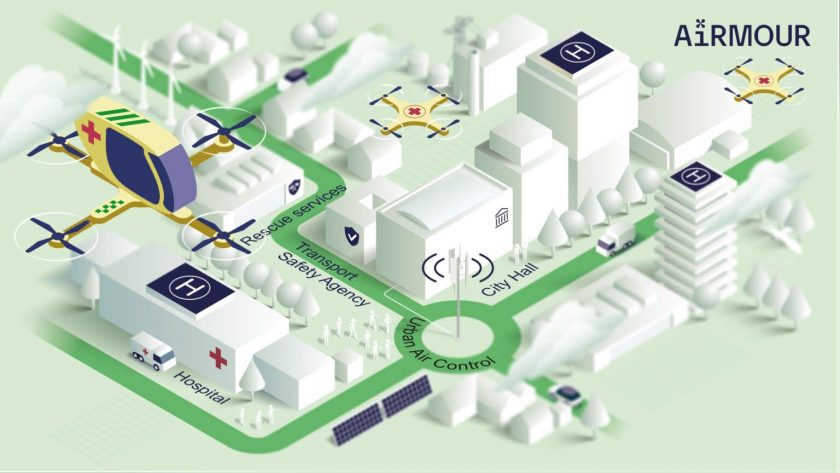The SESAR research and innovation project AiRMOUR, Urban Air Mobility Emergency Medical Services in EU cities and regions, is developing a guidebook for drone services in cities that is aimed at cities, operators and stakeholders. A GIS system with map information for city planners will also be developed, as well as a training program within UAM, Urban Air Mobility, says Billy Josefsson, programme manager for AiRMOUR.
With the help of these tools, every European local cluster of aviation and urban actors will be helped to realize the use of drones in cities. European policies, lower airspace planning and investment will be supported by AiRMOUR demonstrations, findings and new knowledge.
AiRMOUR focuses on research and validation of new concepts and solutions to make drone services safe, quiet and green, but also more accessible, affordable and accepted. The AiRMOUR project promotes an increased understanding of necessary measures in the near future – for urban planners, operators, regulators, and academia.
European policies, lower airspace planning and investment will be supported by AiRMOUR demonstrations, findings and new knowledge. The AiRMOUR project validates drone services for the transport of doctors, patients and medical supplies in real demonstrations in Stavanger (Norway), Helsinki (Finland), the northern Hesse region (Germany) and in simulation in Luxembourg.
AiRMOUR is an interdisciplinary consortium that will involve cities directly and ensure that the tools provided are useful and effective. The consortium has a total of 13 partners, including research institutes, aviation authorities, UAM operators and emergency medical service organizations. In addition, the AiRMOUR project has 10 cities where UAM will be realised and Stockholm is one of those cities. There is an active advisory function in the project with strong international support from organizations such as NASA, Dubai Future Foundation and EASA among others.
“LFV works with the operational concept for different scenarios and associated risk assessment. Two other important focus areas are cyber security and rules and methods where we work together with Linköping University and our lawyers. The Swedish Transport Administration also participates in the project, which means that the solutions we develop have a connection to the near future,” says Gustaf Fylkner, LFV’s research department and project manager at AiRMOUR.
The three-year AiRMOUR project started on 1 January 2021 and has received funding of approximately EUR 6 million from the European Union’s research and innovation program Horizon 2020.
For more information visit:




